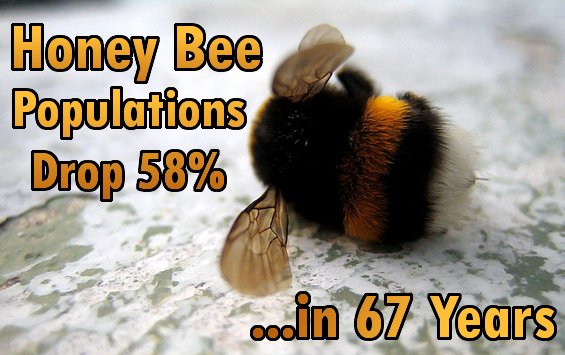Bee Crisis Gets Extra Attention: 800 Studies Reveal Why Bees are Dying

 Maybe once the White House garden is completely devoid of all pollinating insects and animals, like bees, birds, and butterflies, President Obama and the First Lady will take notice of the obvious effects neonicotinoids (neonics) are having on our ecosystem. A recent meta-analysis of over 800 studies confirming the damage that pesticides are doing to these vital creatures is adding to the media buzz, giving bees and butterflies the attention they deserve.
Maybe once the White House garden is completely devoid of all pollinating insects and animals, like bees, birds, and butterflies, President Obama and the First Lady will take notice of the obvious effects neonicotinoids (neonics) are having on our ecosystem. A recent meta-analysis of over 800 studies confirming the damage that pesticides are doing to these vital creatures is adding to the media buzz, giving bees and butterflies the attention they deserve.
The buzz is leading to lawsuits, bans, and increased consumer activism. From more than a half million people demanding that Lowe’s and Home Depot remove all neonics from their shelves, to three environmental groups in California suing the state’s Department of Pesticide Regulation hoping to stop the use of three pesticides approved just this June, to the US Fish and Wildlife Service (FWS) announcing last week it was going to phase out neonics in Pacific Northwest refuges, we’re making progress. But it isn’t enough, fast enough.
Nichelle Harriott, staff scientist with Beyond Pesticides says:
“The science clearly shows that, not only are these systemic pesticides lethal to pollinators, but even low doses can disrupt critical brain functions and reduce their immunity to common pathogens.”
President Obama did release a memo saying he was going to create a Pollinator Health Task Force, but neonics need to just be banned across the board right now.
“This federal strategy will include a pollinator research action plan, with a focus on preventing and recovering from pollinator losses, including studying how various stressors, like pesticides, pathogens and management practices contribute to pollinator losses. The task force will also engage in a public education initiative and develop public-private partnerships with various stakeholders.”
If this will be anything like the task force the government assigned to look into GMOs, then we’re not going to fair very well. That list of ‘experts’ includes known biotech supporters.
Honey bee colony populations have dropped from 6 million in 1947 to just 2.5 million today; Monarch butterfly migration numbers are dwindling too.
Neonics, have been linked to impaired learning in pollinators, food collection, navigation, immune function, and reduced egg-laying. Even worms affected and they are responsible for soil health. Neonics are totally invasive. They take over a plant’s roots, leaves, pollen, and nectar, and almost no toxicity assessments have ever been completed on them.
“We are a witnessing a threat to the productivity of our natural and farmed environment equivalent to that posed by organophosphates or DDT,” wrote Jean-Marc Bonmatin, an author of a study on neonics.
Even the EU has implemented a two-year moratorium on neonics due to their obvious negative impact.
Additional Sources:

More chemicals each day are being allowed to effect our environment without concerns for the aftermath. This is all for money and not the well being of the planet.
Government agencies like the USDA and EPA are running a profitable insecticide approval business but these damn pollinators keep getting in the way!